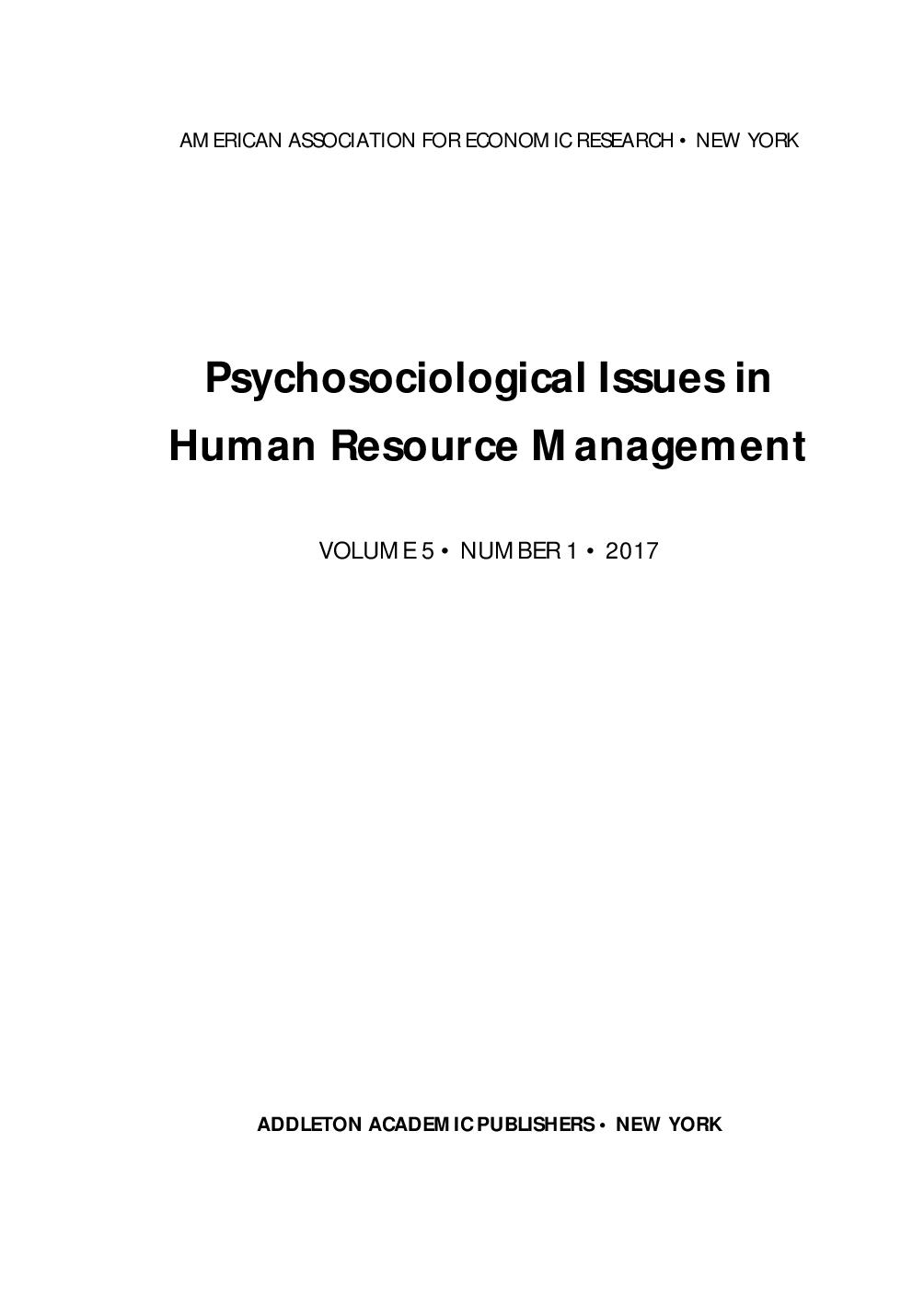WHAT CONTRIBUTES TO PSYCHOLOGICAL CONTRACT BREACH? INVESTIGATING A MULTILEVEL APPROACH ON THE INTERPLAY OF ORGANIZATIONAL AND INDIVIDUAL FACTORS
WHAT CONTRIBUTES TO PSYCHOLOGICAL CONTRACT BREACH? INVESTIGATING A MULTILEVEL APPROACH ON THE INTERPLAY OF ORGANIZATIONAL AND INDIVIDUAL FACTORS
Author(s): Mareike ReimannSubject(s): Organizational Psychology
Published by: Addleton Academic Publishers
Keywords: psychological contract breach; employment relationship; employer–employee; human resources; multilevel modeling
Summary/Abstract: This study investigated how the interplay of organizational and individual factors affects employees’ perceptions of psychological contract breach (PCB). Applying a multilevel approach, the study explored differences between and within organizations to assess the relative contributions of single factors as well as the interplay of organizational and individual factors in the emergence of PCB. Multilevel regression models were based on a sample of 94 organizations and 4,949 employees from a linked employer–employee study (LEEP-B3) representative of large organizations in Germany. The results showed little empirical evidence that organizational factors alone, such as organizational structure and human resource practices, contributed to employees’ perceptions of PCB, whereas individual factors were extremely important contributors. Although determinants such as overtime, physical strain, and feelings of job insecurity predicted increased PCB, participation in advanced training or supportive relationships with direct supervisors and colleagues predicted decreased PCB. Regarding the interplay of organizational and individual factors the results indicated that factors from both levels add up to even more disadvantageous situations for employees’ psychological contracts (e.g., high competitive pressure and no advanced training), to even advantageous situations, or they might balance each other out (e.g., written agreements and supervisory responsibilities).
Journal: Psychosociological Issues in Human Resource Management
- Issue Year: 5/2017
- Issue No: 1
- Page Range: 7-45
- Page Count: 39
- Language: English
- Content File-PDF

